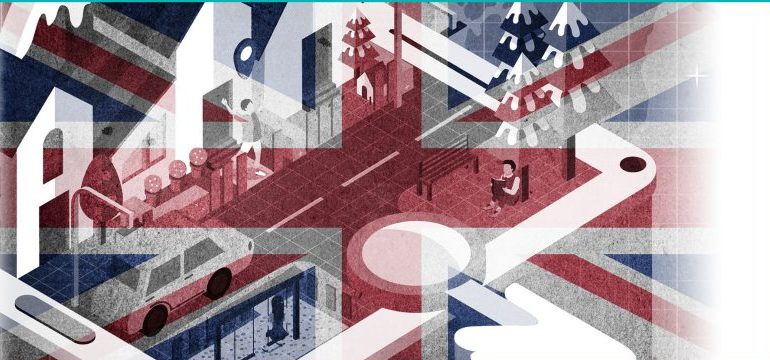
Recap: UK Winter Budget 2017
Posted on: 3rd December 2017 in
UK
With Christmas less than a month away, the bustle of the festive season means that for many of us we’ve already forgotten all about the UK Winter Budget (delivered by Philip Hammond, UK Chancellor of the Exchequer on November 22nd).
So here’s a recap of the changes to the British economy that you can expect if you’re flying home for Christmas:
Pick of the Budget for the press was the welcome removal of Stamp Duty for first-time buyers of properties valued up to £300,000 …
… And in other UK Budget Property News
- A total of £44 billion is to be invested in house building such that, by the middle of the next decade, there will be 300,000 new homes per year being built
- Around £8bn of guarantees in private housebuilding
- The homebuilders fund will receive a capital boost
- An extra £630m for a ‘small sites fund’
- £7bn housing infrastructure fund
- £1bn for new urban regeneration
- £34m to train construction workers
- Local councils are at liberty to double taxation on homes reasonably believed to be permanently empty.
- Three pilot housing schemes in West Midlands, Manchester and Liverpool costing £28m will aim to cut rough sleeping by half in five years, and eliminate it by 2027
Northern & Regional Investment
To fuel the ‘Northern powerhouse’:
- £7 billion to investment in cities
Scotland, Wales and Northern Ireland:
- £2bn extra for Scotland.
- £650 million extra for Northern Ireland.
- £2 billion extra for Wales.
Economic Growth
Revised down to 1.5% in 2017 from 2%.
Forecasts are for economic growth of 1.4% in 2018, 1.3% in 2019, 1.3% in 2020, 1.5% in 2021 and 1.6% in 2022 – all of which are lower figures than the forecasts made in March this year.
Income Tax
From April 2018, the basic rate of income tax will rise to £11,850, and is set to rise again to £12,000 by 2020, as per the Chancellor’s previous statement; the 40% tax threshold will increase to £46,350.
Tax Avoidance
Measures to raise £4.8bn by 2022-23.
VAT
Consultation on threshold of £85,000 at which small businesses pay VAT.
Business Taxation
- £3 billion cost to bring forward the change to Consumer Prices Index from Retail Prices Index by two years to 2018.
- future revaluations after this one to take place to every three years rather than five.
- Staircase tax: affected businesses will have original bill reinstated.
Digital
£200m a year extra from income tax on UK sales.
£1.2 billion a year is the target to address ‘lost’ VAT from online shopping.
Northern & Regional Investment
Northern powerhouse
- £7bn transforming cities fund.
Scotland, Wales and Northern Ireland
- £2bn extra for Scotland.
- £650 million extra for Northern Ireland.
- £2 billion extra for Wales.
Economic Growth
Revised down to 1.5% in 2017 from 2%.
Forecasts are 1.4% in 2018, 1.3% in 2019, 1.3% in 2020, 1.5% in 2021 and 1.6% in 2022 – all of which are lower than the forecasts made in March this year.
A fuel duty rise has now been cancelled.
Research & Development
- £3 billion of investment.
- Increase tax credit to 12%.
- £500m for artificial intelligence and 5G initiatives.
- £20bn of new investment in UK knowledge-intensive industries.
- £5bn for the British Business Bank.
- Encourage pension fund investment.
- Boost to Enterprise Investment Scheme (tax-efficient investment in small companies)
- Replace funding from Europe amid the Brexit process.
Airlines
Increase on air passenger duty on premium-class tickets.
Education
£40m for maths teachers; £600 premium for schools for each student taking A-level maths.
The number of science teachers to triple to 12,000. Further planned is a new national centre for computing.
Oil & Petrol
Investment-friendly amendments to company taxation; ‘Transferable Tax History’ for oil and gas fields in the North Sea.
A fuel duty rise has now been cancelled.
Universal Credit
“Households in need who qualify for Universal Credit will be able to access a month’s worth of support within five days, via an interest-free advance, from January 2018. This can be repaid over 12 months. Claimants will be eligible for Universal Credit from the day they apply, rather than after seven days.”
(www.gov.uk)
£3bn set aside for post-Brexit funding.
NHS
- £10 billion capital investment in frontline services between now and the next election.
- £8 billion injection for England.
Living Wage
Now £7.83 an hour, up from £7.50.
Rail
Consumers aged 26-30 to see rail fares discounted by a third.


















